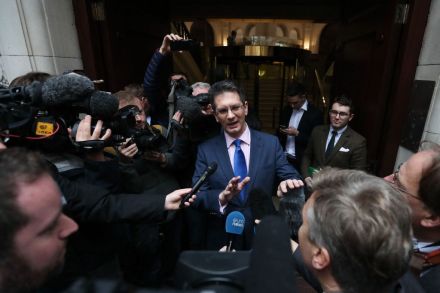What’s left of the Tories?
The Commons is closing down for the summer, but Kemi Badenoch has treated us to a shadow cabinet reshuffle. At the beginning of the year, Badenoch’s team were keen to stress stability, dismissing talk of an early reshuffle. But, as so often in politics, events have forced her hand. Ed Argar, the shadow health secretary, had a health scare earlier this summer. He has today stepped back from the frontbench to focus on his recovery. Badenoch is therefore using his departure as the chance to make what she calls ‘a few changes to my frontbench.’ The headline is that Sir James Cleverly, former foreign and home secretary, is returning to




















